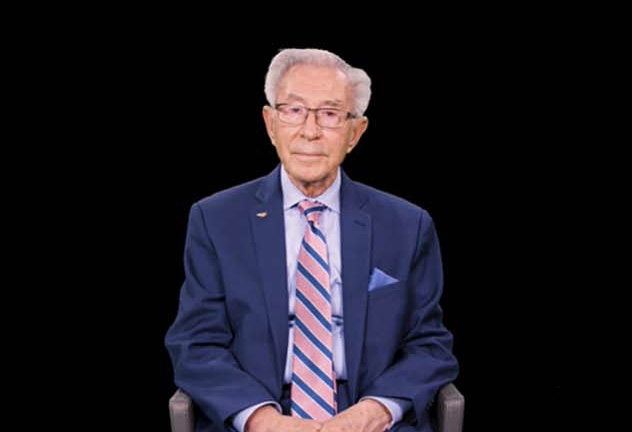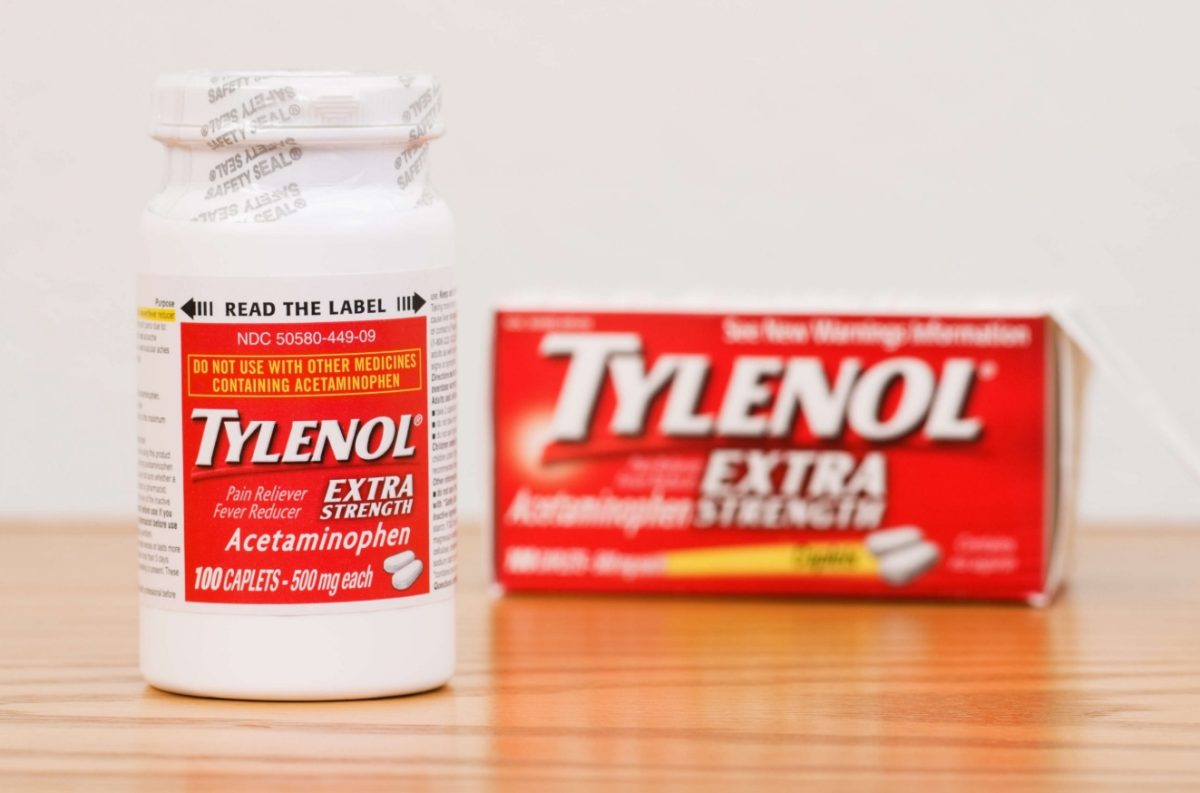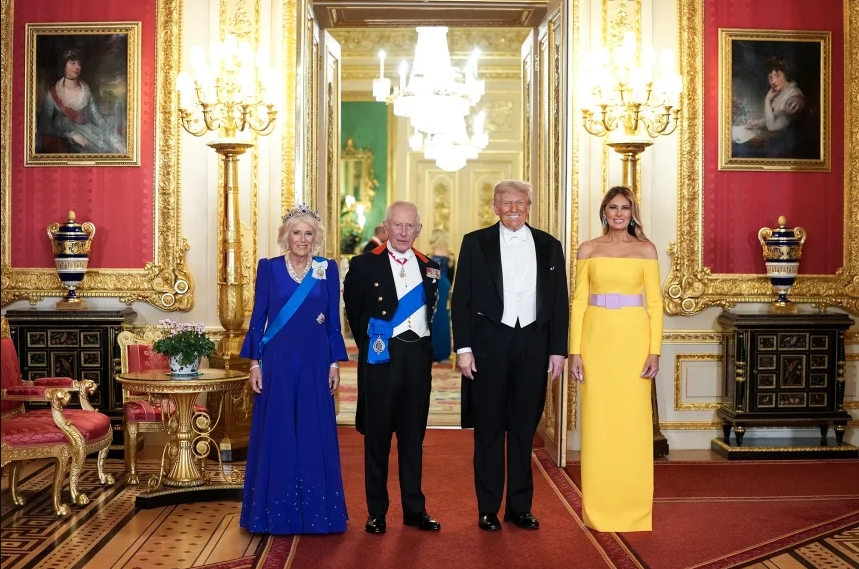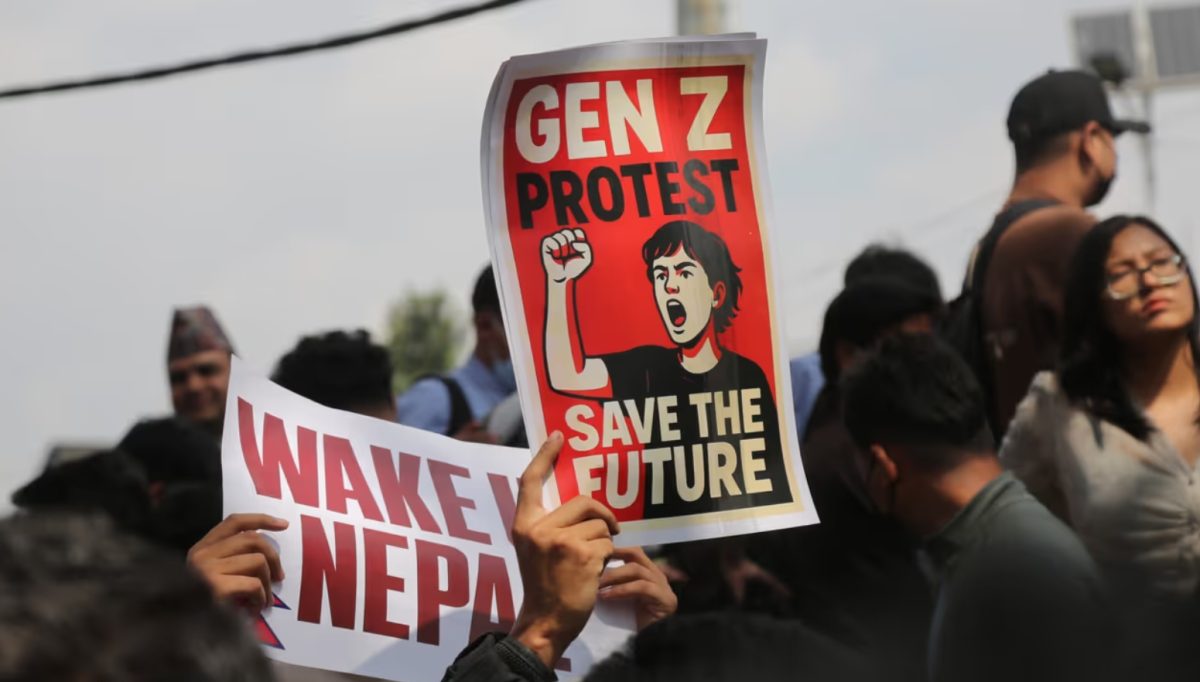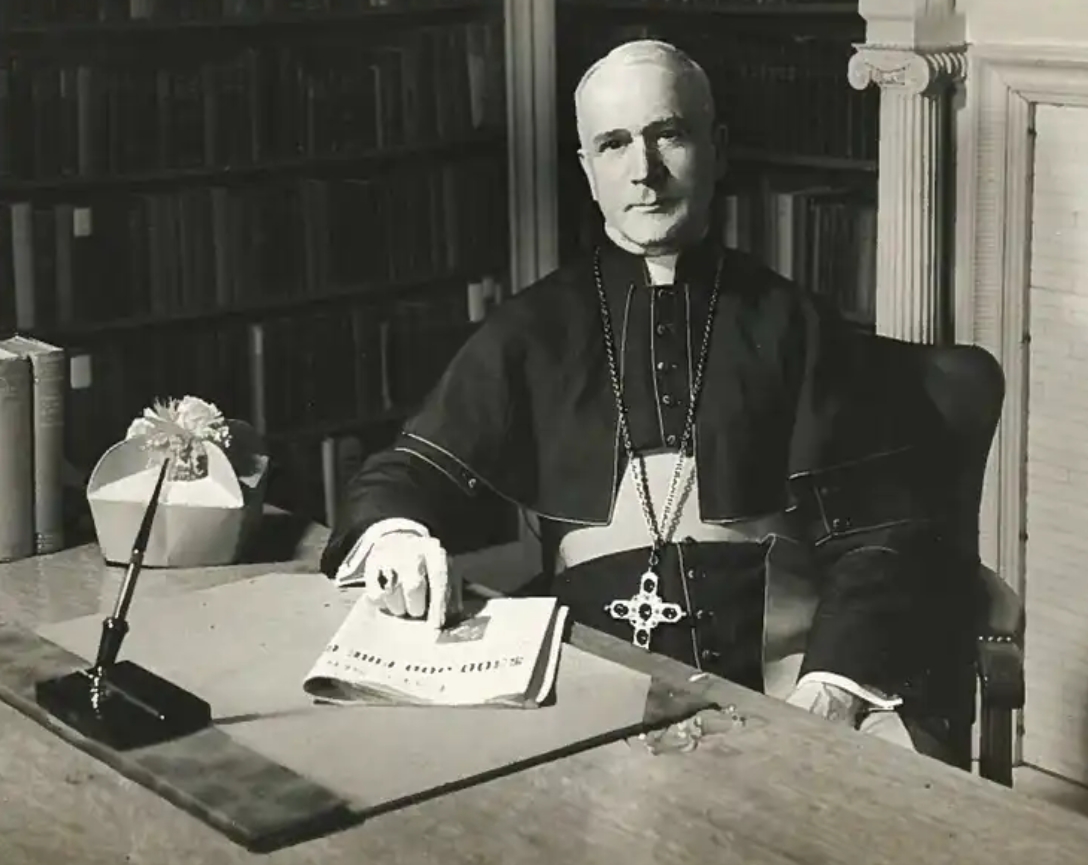Dec 17, 2024/Midnight
Erie, Pa.—Last week I had the great privilege to sit down with Ben Lesser, a 96-year-old holocaust survivor. We met via Zoom and had about a 40 minute conversation to discuss the current state of antisemitism and the issues regarding the ongoing conflict in the Middle East.
Lesser was born in Krakow, Poland in 1929. His young life was disrupted when his city was occupied by the Nazis and the Jewish people were forced from their homes into ghettos and eventually into camps. The slaughter of thousands took place in the process, claiming the lives of most of Lesser’s family, friends, and neighbors.
Lesser was one of the fortunate few who survived “the hell on earth,” experiencing multiple ghettos and living through four concentration camps—including Auschwitz and Buchenwald—two death marches and two death trains.
Lesser was liberated from the German Dachau camp in 1945.
Ben Lesser would move to the United States in 1947, settling in Los Angeles, where he would get married and raise his family. In 1995, after garnering a successful career in Real Estate, Lesser retired and has since devoted much of his time volunteering and speaking to people of all ages about the Holocaust. His mission is to make sure the world never forgets the tragic events that led to the death of millions and to pass on this remembrance for the next generations to come.
I started the interview asking Lesser if he feels disheartened, knowing that antisemitism is on the rise once again, after having seen this hatred change and have so many different faces over the years.
“It’s very disturbing and I am worried. But am I worried that another holocaust will develop out of it? No. Here in the United States of America, we have a constitution, and I don’t think they will allow it to go that far.”
The Holocaust, which lasted from 1933 to 1945, was the persecution and mass killing, of primarily European Jews and several other marginalized groups. The killing was perpetrated by the German Nazi regime, concurrent with World War II. It is recorded that about 6 million European Jews were murdered during this systematic and violent killing spree.
“Remember that the holocaust was a government sponsored killing, government sponsored hatred, there is a difference.” Lesser mentions.
We also spoke about the Holocaust deniers and how this is one of the ways which antisemitism is boosted.
“There are a lot of Nazis and people that deny the Holocaust. They do that purposely in order to get the young people who don’t know much difference to believe there was never a Holocaust and to make them believe that Jewish people are someone who they have to hate.”
Lesser continues, “This is where antisemitism started, it begins in schools and colleges and those of you who know the difference, hopefully, will fight back and not allow this to spread.”
I asked Lesser if he believed the spotlight put on the war in the Middle East over the past year is part of the reason for this rise in antisemitic hate.
“The fighting in the Middle East is just an excuse.” Lesser states. He says there are many people who are “warmongers” and want to find a reason to spread hate. “The fighting in the Middle East has been happening over many years now and these are only excuses.”
For many young people, the attack by the Palestinian militant group Hamas on October 7, 2023, against Israel is their first introduction into the conflict itself and the history of the Israel/Palestine territory.
Social media further illuminated the conflict and stirred a lot of antisemitic conversations within the #FreePalestine movement, where social media users advocated for a free and liberated Palestine. Many extremist supporters of the movement also back the anti-Zionism rhetoric, or the opposition to the existence of the Jewish state of Israel.
I asked Mr. Lesser about the importance of the understanding the difference between anti-Zionism and antisemitism along with his thoughts on the people who believe Israel does not have a right to exist.
Lesser explained the history of Israel, which biblically used to be called Judea. After the Romans conquered the area, the Jewish people who lived there were dispersed into the diaspora, which spans all over the world.
“The hatred started because the Jewish people had their own religion, and they dressed differently, and they prayed differently and had different ideas.” Lesser stated.
“As the economy was not very good, they needed a scapegoat, and it was always that Jews who happened to be there…Hitler needed a scapegoat, and the Jewish people were the perfect scapegoat.”
Lesser says later, “Zionism, it’s just another scapegoat. There is no reason to hate the Jewish people” Lesser presses. “They’re very productive people, they’re loving people, they’re just people.”
He tells me, “It’s people like you and people who understand the difference who should do something to stop this before it spreads to the point of no return.”
I mentioned the attack on the two college students from DePaul University in Chicago, who were targeted on campus during a public demonstration in support of Israel last month. I asked Lesser how it made him feel to see young people being attacked for simply speaking out.
“It makes me feel terrible, terrible.” Lesser starts. “I went through hell on earth, and I know how it starts. This has to stop.”
Lesser explains again that he believes there will not be a repeat of the holocaust here in US, but there are many parallels of what he sees today to what he saw back then.
“I see the same beginning and the same signs as with Hitler.”
Lesser continues, “We now know that everybody knew what was happening to Jewish people and they chose to be silent.” He then spoke of the death toll of the holocaust being 6 million— a million of whom were children. “And where was the world? No one said a peep. Nothing.”
“The Jewish people have not harmed anybody. Look what happened in Israel with Hamas. 1,200 men, women, and children, they were slaughtered. Why?” He pressed.
Then I inquired if Lesser saw a resolution to the conflict in the Middle East in the near future and what he believed a solution could look like.
“Yes, I believe there should be a division. There should be an Israel and there should be a Palestine.” Lesser explains further saying, “Where the Palestinians live now, that should become Palestine, and they should get along with each other.”
I then asked Lesser what he would like for young people to understand about the conflict in the Middle East and the importance of knowing the dangers of antisemitism, especially for college students and other people, who’s main source of information is social media. I also asked him why it is important to address the current state of antisemitism.
Lesser answers, “They should address antisemitism by learning, having classes. Not classes by people who like to see hate or divided people in the world, but real classes by people who mean well. They should learn, and I would highly recommend, that people should go to Palestine, to Israel. If they go to Israel, they will change their way of thinking completely.”
“There has not been a more loving and peaceful country than Israel, except when they’re attacked by their neighbors.”
Lesser mentions the saying “from the river to the sea,” which is commonly used as an antisemitic slogan by opposers to the state of Israel meaning that they want to get rid of the Jewish people by pushing them from the Jordan into the sea to acquire a liberated Palestine.
Gail Lesser-Gerber, Ben’s daughter and the executive director for his ZACHOR Holocaust Remembrance Foundation, was also on the Zoom call.
She came in to explain this comment and the current state of Israel/Palestine territory in a way that most people who have never been to the territory do not understand.
“You go to Israel and Arabs and Jewish people alike are living in neighboring towns, their children playing together, walking on the streets, shopping, they work in the hospitals together…it’s just the extremists that create the problems and the issues.”
Lesser-Gerber goes on explaining that some people on the outside do not see the full picture, “There’s only black and white and they really don’t see the whole story,” She explains.
She then went on to reiterate the importance of education, saying it is the best tool to combat the issue of antisemitism, “People need to be properly educated about the history.”
Lesser himself suggested to become friends with those of different backgrounds, “Learn from each other.” he urged.
He tells me not to go with one side, “Get to know some Jewish people, become friends. It will change your way of thinking.”
My final question for Mr. Lesser was his thoughts for the future. I asked him what he would want people to know going into the new year, especially for young people like myself, who may be venturing out into the “real world” for the first time.
“Remember that the Holocaust began with hate. The Nazis and Hitler did not start with killing, it all started with hate.” Lesser continues saying “The hatred has to stop, and I’m telling you as a college student, there is no room for hatred in this world. Love and hate are contagious, so choose love.”
Lesser finishes off saying, “We are all God’s creation, we all have the same rights to exist in this world, so why can’t we just live side by side and appreciate our differences rather than hate them? Love is the answer to everything.”
To learn more about Ben Lesser and his mission please visit the ZACHOR Holocaust Remembrance Foundation webpage and check out the “I-SHOUT-OUT” campaign, which is forum created by Lesser and his team, where the public is encouraged to shout-out and advocate what they believe in, as way to aid to the elimination of bullying and intolerance in our society.
Lesser has also published a memoir titled “Living a Life that Matters: From Nazi Nightmare to American Dream,” which can be purchased directly from the ZACHOR Foundation website.


